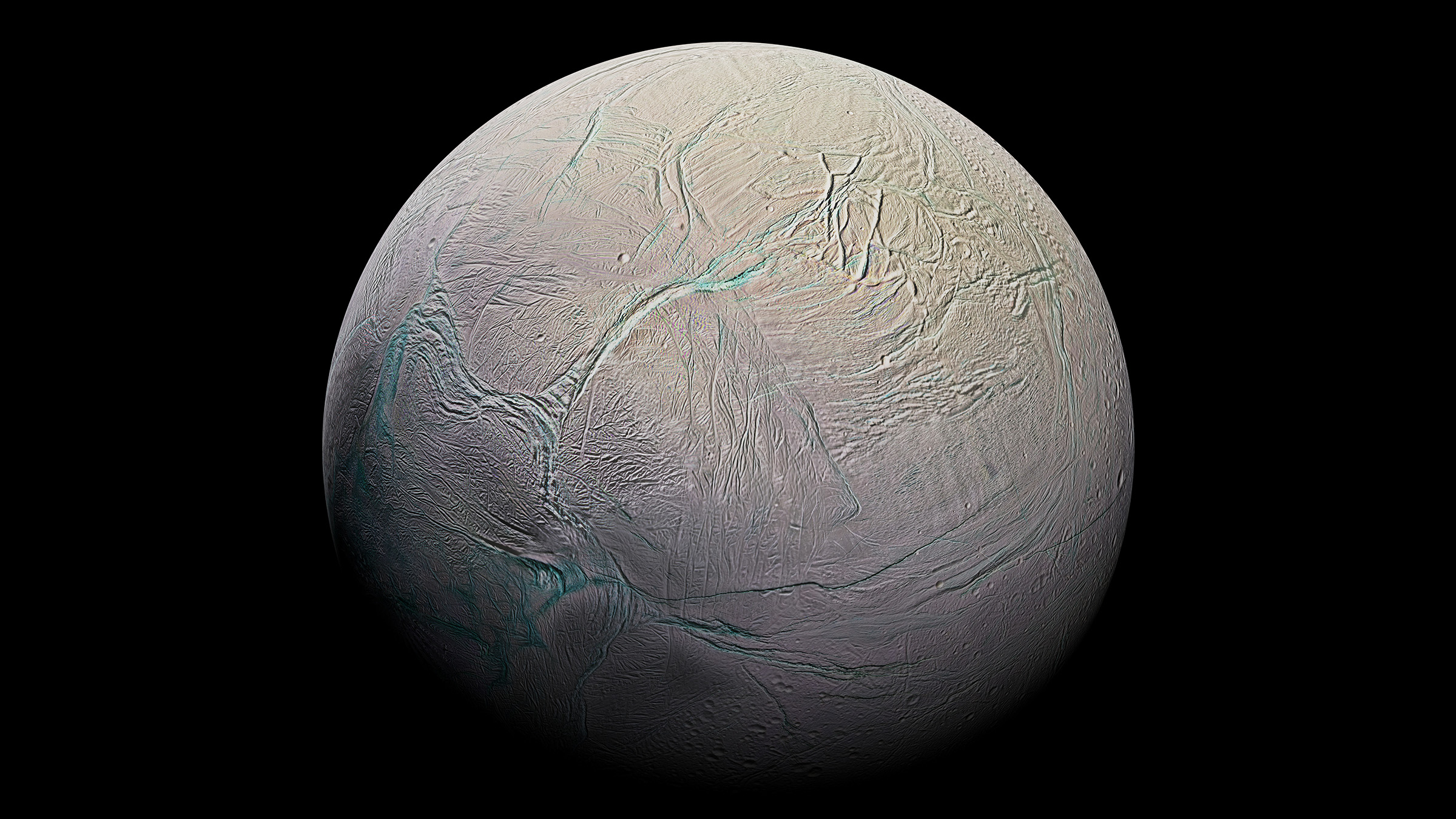Astronomers say that traces of phosphorus have been detected in the salty ice grains found on Saturn’s moon Enceladus. Late last month, astronomers reported that a massive plume seen jutting from Enceladus could be key in the search for life beyond Earth. Now that we’ve discovered this key building block of life on the moon, though, that outcome seems even more likely.
According to the new reports, the chemical was found in the grains of salty ice that were recently released into space by the plumes I mentioned above. These plumes have been releasing material from cracks in the ice shell that surrounds the moon’s surface. Below that shell, though, is an ocean that could be home to even more building blocks of life.
Scientists involved in the new research utilized data taken from NASA’s Cassini mission, which studied Saturn in-depth between 2004 and 2017. During that time, the mission also looked closely at the planet’s moons, of which there are many. A study on the discovery of phosphorus on Enceladus can be found in the journal Nature.

The scientists say that phosphorus is an important component for all of life on Earth. As such, it’s essential for the creation of RNA, DNA, ATP, and cell membranes. Without phosphorus, life as we know it would not exist in any way. What’s even more intriguing about this discovery is that this is the first time we have discovered phosphorus in an ocean beyond Earth. Finding phosphorus on Enceladus is a huge discovery.
The belief here is that the oceans beneath the surface of Enceladus could be habitable to life in some form. The most likely chance here is that those lifeforms are microorganisms of some kind, but still, the search for alien life doesn’t necessarily rely on us finding intelligent life. Even being able to find microorganisms on another planet or its moon would be a massive breakthrough for space discovery.
Perhaps future missions to Saturn and its moons could help uncover additional details about how much phosphorus is found in the oceans of Enceladus.








